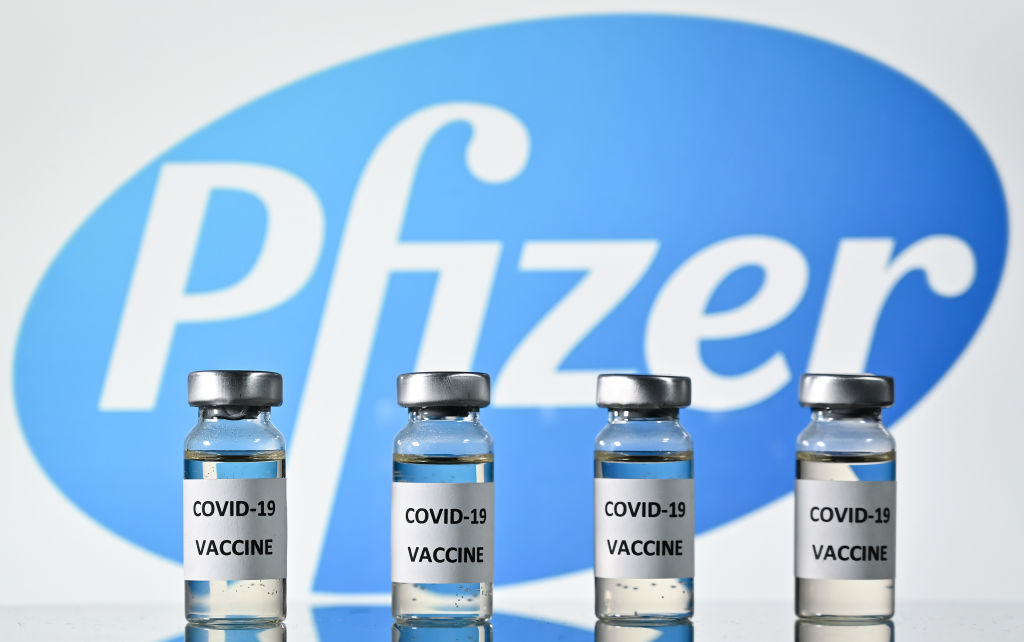Pfizer's FDA application means the 1st COVID-19 vaccine could be distributed in mid-December


A free daily email with the biggest news stories of the day – and the best features from TheWeek.com
You are now subscribed
Your newsletter sign-up was successful
Pfizer said Friday it's submitting its application to the Food and Drug Administration for emergency use authorization of its COVID-19 vaccine. If the FDA and its independent scientific advisers decide the vaccine is safe and effective after a public meeting in early December, the first shots could go out to groups of Americans, apportioned according to criteria to be determined by a separate government advisory group. Pfizer said that it may have 25 million doses of vaccine ready in December, 30 million more in January, and another 35 million doses in February and March. People will need two doses of the vaccine.
Pfizer and its German partner BioNTech announced earlier this week that its vaccine had proved safe and 95 percent effective in its large, ongoing human trial. The FDA and its advisory board will conduct their own analysis of Pfizer's data, and emergency use authorization means the FDA will continue to monitor the vaccine. Pfizer said it has also started applications for approval in Britain and Europe. Moderna, whose vaccine also showed 95 percent efficacy in human trials, is expected to submit its FDA emergency use application in the next week or two.
"Help is on the way," Dr. Anthony Fauci, the top U.S. infectious disease expert, said Thursday, adding that in the meantime, "we need to actually double down on the public health measures as we're waiting for that help to come." If the vaccines win approval and can be efficiently distributed to Americans willing to be inoculated, the pandemic could be effectively under control by mid-spring or summer.
The Week
Escape your echo chamber. Get the facts behind the news, plus analysis from multiple perspectives.

Sign up for The Week's Free Newsletters
From our morning news briefing to a weekly Good News Newsletter, get the best of The Week delivered directly to your inbox.
From our morning news briefing to a weekly Good News Newsletter, get the best of The Week delivered directly to your inbox.
A free daily email with the biggest news stories of the day – and the best features from TheWeek.com
Peter has worked as a news and culture writer and editor at The Week since the site's launch in 2008. He covers politics, world affairs, religion and cultural currents. His journalism career began as a copy editor at a financial newswire and has included editorial positions at The New York Times Magazine, Facts on File, and Oregon State University.
